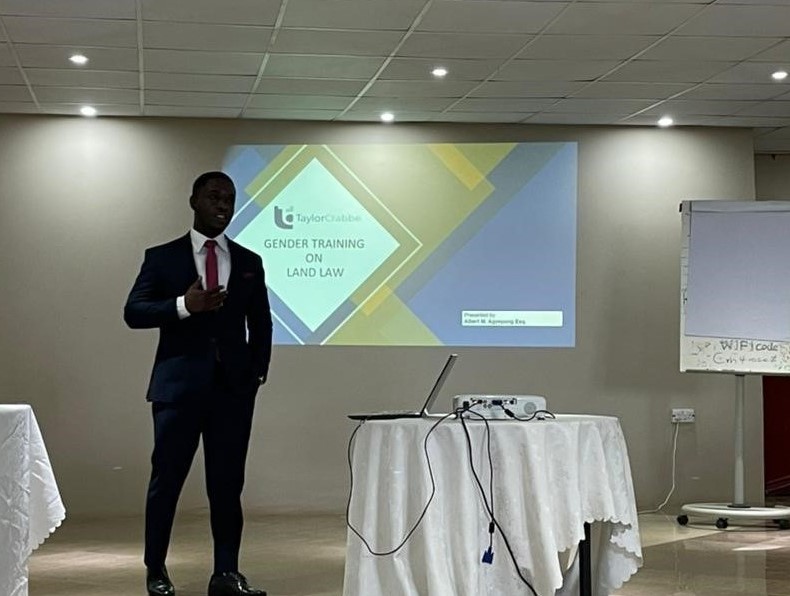Promoting Better Governance Through Legal Capacity Development
Weak forest governance systems allow illegal operations and forest-risk commodities to proliferate and threaten the world’s forests and the livelihoods for some of the world’s poorest communities. It is therefore critical to strengthen forest governance systems, legal frameworks and law enforcement by improving the legal awareness, capacity and engagement of stakeholders who depend on, and are in a position to safeguard the future of forests. This will significantly contribute to the improved management of forests, poverty reduction, biodiversity conservation, and climate protection.
To achieve this, ClientEarth, a UK-based charity organization partnered with RAIN for the implementation of their project dubbed “Using the law to address illegal use of forest resources and promote better forest and land governance” under the Forest Governance Market and Climate (FGMC) programme.
Objectives
The objectives of the action are to:
• Improve women's legal capacity and gender mainstreaming in forest laws and VPA implementation, and
• Support the negotiation of Social Responsibility Agreements in Ghanaian communities
Activities
Specific activities under the projects are:
1. Develop and lead sessions on gender mainstreaming in forest laws and VPA implementation in the ClientEarth ‘Legal Working Group'
2. Organize trainings for approximately 20 women active in the forest sector, focusing mainly on CSOs but also open for women from media, government and the private sector
3. Provide community level support to negotiation of Social Responsibility Agreements (SRA) between forest fringe communities and loggers.
Achievements so far
• Sixty-three (68) communities from seven forest districts benefitted from training on social responsibility agreement between March 2020 to October 2023.
• Fourteen (14) training sessions including two field visits have been organized between the year 2020 and 2023 to expose selected women from the forestry sector to the different areas within the sector where they could play a role.
• Eight (10) gender sessions facilitated at Legal Working Group meetings
Building the capacity of Women in the Forestry Sector of Ghana
The forestry sector across the globe is generally male dominated. Although women have very important roles to play in nurturing, managing and monitoring of forest resources, they are mostly sidelined due to lack of understanding of these roles by their male counterparts; perception that forestry is a male-dominated field; and of lack of clarity among researchers and practitioners on how to harness the capabilities of women for the development of the sector.
The situation is not different in Ghana, where the perceived patriarchal nature of the sector literally relegates women to the background and sometimes discourage women especially the young ones from getting into the profession. With the emerging global trend to promote the inclusion of all stakeholders in all relevant issues; studies on gender gap in the forestry sector and the call for bridging this gap; there is the need to strengthen the participation of women in the forestry sector.
The Intervention
Client Earth, under their Forest Governance Markets and Climate Project titled “Using the law to address illegal use of forest resources and promote better forest and land governance” partnered Rights and Advocacy Initiative Network (RAIN), a non-governmental organization in Ghana to build the capacity of Women in the Forestry sector.
‘Women in Forestry’ therefore emerged as a platform initiated by RAIN to organize women from different groupings in the forestry sector including Academia, Media, Government agencies, the Timber Industry and Civil Society Organizations, with an objective to enhance their capacity to contribute meaningfully to decisions concerning the sector. The platform have so far accorded these omen the opportunity to learn about ongoing processes within the forestry sector, share experiences from across the sector and also provide opportunity and a space to encourage and mentor young practitioners in the sector.
Achievements
Over the last three years, the regular engagement of these women has enabled them to have in-depth understanding of the need for gender and social inclusion in the design and implementation of programmes, projects and plan, with emphasis on gender planning, gender budgeting, communicating and reporting on gender perspectives.
To enable them appreciate and communicate effectively on the implementation of the Forest Law enforcement and Governance and Trade (FLEGT), the women have received training on FLEGT highlighting Ghana’s Legality Assurance System (GhLAS). The legality principles and criteria with their supporting legal frameworks have been explained to them. The women can consequently relate the processes and the actions at their various offices and institutions to the FLEGT VPA implementation and are able to speak to the process.
The members who belong to this platform are not only knowledgeable in forestry, but can also boast of but can also boast of some legal terminologies by kind courtesy Taylor Crabbe Initiative (TCI) that provides a legal session as part of our trainings. The women have gained insight into the law-making process, forest laws and regulations, Spousal Rights laws, Access to Justice, the Land Act of 2020, , and other contemporary issues relevant for the development of professional women within the forestry governance sector.
Conclusion
The journey to gender and social inclusion requires time, efforts and financial commitment. We therefore appreciate ClientEarth for the partnership which extended the funding support from UKAID to come this far. There is however more to be done, thus we call on interested organizations, governments and philanthropist especially women interested in championing the course of gender especially empowerment of women to come on board so that together, we make it happen.




